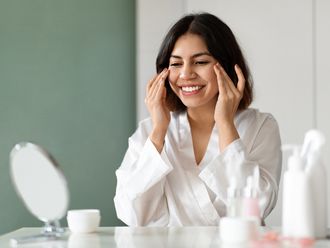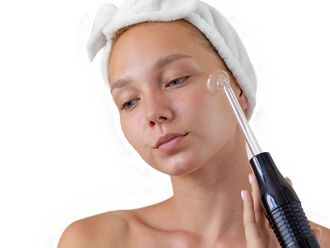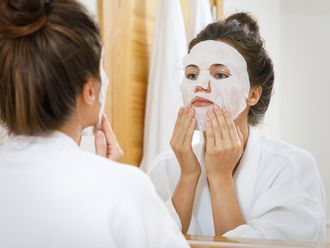
You’re probably familiar with the entire routine of skincare now, from cleansers to serums - you’re sorted. Don’t let your scalp get left behind in all this self-care, it needs the same amount of moisturising if not more. Without the right amount of moisturisation, your scalp would tend to suffer from itchiness and dryness. Worse, it can get flaky and lead to hair breakage over time.
Well, if you’re looking for solutions, don’t worry, we got you sorted. Experts break down the routines in simple steps.
Why do we have dry scalp?
Before you do anything, try to understand why your scalp suffers from dryness. What’s the root problem, pun intended. There could be multiple reasons for this. The scalp is dry owing to a depletion of the moisturising agent, which is sebum. For starters, there could be an imbalance in the microbiome, which consists of various organisms including yeast and bacteria. These are responsible for maintaining a healthy hair growth. If there is a slight imbalance in the scalp microbiome, this could lead to dryness and scalp irritation.
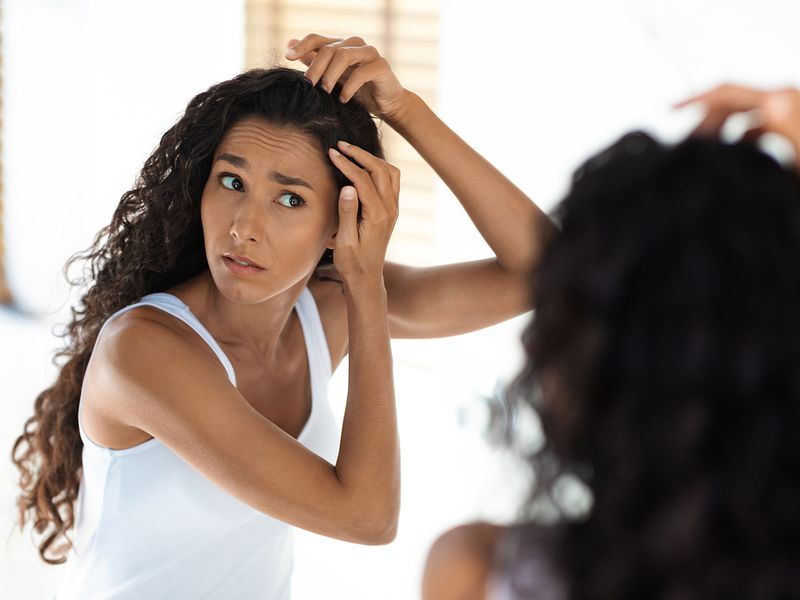
Other reasons for dryness include harsh shampoos, excessive heat styling and hot showers that could rid the scalp of its natural oils. Suresh Babu, a specialist dermatologist from Al Zahra Hospital, Dubai adds that while hot showers seem soothing, it actually irritates the scalp further. He also explains the role of air-conditioning in scalp dryness. “We are sitting in air-conditioned rooms all day, and this plays a role in the scalp dryness and itchiness. It causes a dry scalp as it removes the moisture from the air,” says Babu. Hormonal reasons like thyroid and polycystic ovary syndrome in women also contribute to problems with the scalp. Such conditions require a consistent haircare routine along with dermatologists’ advice, he adds.
Moreover, the absence of a healthy diet filled with required nutrients could lead to dryness in the scalp, explains Shruti Kakar, a dermatologist at Medcare, Dubai. However, more severe causes of a dry scalp could be the result of conditions like seborrheic dermatitis and psoriasis. In the case of psoriasis, the dandruff flakes will be much thicker, and is far more advanced as it can spread to different parts of the body and cause inflammation.
How can you moisturise your scalp well?
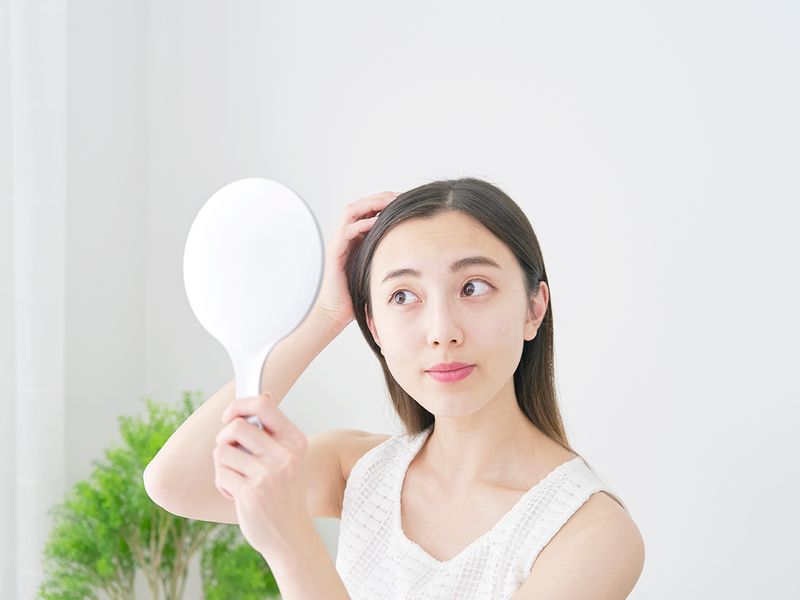
You need to figure out a consistent routine that suits your scalp’s needs. Your scalp needs sebum, so you need to design treatments that aren’t harsh to your skin. The shampoos should be sulfate free, so that they can maintain the balance of the microbiome. Shampoos with sulfates have a tendency to have harsh cleansers that strip the skin of its natural oils. Sulphates have drying agents, says Kakar. Tailor a regime she says, that involves coconut oil or rosemary oil that also helps hair growth. See what hair products benefit your skin and do not aggravate the itchiness and dryness further, she says.
You can always try exfoliating scalp facials, serums that sooth, moisturise and rejuvenate the scalp. And, avoid hot showers and excessive heat styling.
Cleansing with gentle shampoos
You’re advised to not try clarifying shampoos, which remove oil from the scalp and hair. Look for shampoos that are rich in fatty acids, like avocado and shea, as well as amino acids, explains Babu. Try using shampoos that are formulated with avocado oil, which helps maintain scalp balance and moisture levels, while amino acids like histadine, alanine, and valine support your skin’s natural moisturising factors. If you have mild dandruff, cleanse daily with a gentle shampoo as it reduces oil and skin-cell buildup.
Apply hair oils and serums
Babu advises oiling your hair at least thrice a week, by using coconut oil, almond or olive oil and serums, which will help to keep the scalp moisturised. Avoid harsh oils, says Kakar. You can use a scalp scrub too, as it helps in allowing serums and oils to penetrate deeper. On the flipside, too many products on your hair might be too harmful, so try to keep your routine relatively simple and organic, says Babu. Too many products affect the pH balance of the scalp and lead to more issues.
Don’t forget to massage your scalp throughout your routine, as it promotes blood flow and stimulates the production of natural oils, and hydrates the scalp.
If you’re dealing with seborrheic dermatitis, or even psoriasis, consult a dermatologist for more specialised treatments.
Exfoliate your scalp every one or two weeks
When you exfoliate your scalp, you remove the dead cells or debris. As a result, your hair follicles are much stronger and are in a better position and grow healthy hair. According to medical experts who told the health portal Byrdie.com, this removes scalp buildup and allows the natural oils to keep the scalp and hair nourished. On the flipside, excess sebum can aggravate the Malassezia furfur yeast that can lead to dandruff, which makes exfoliation all the more necessary.
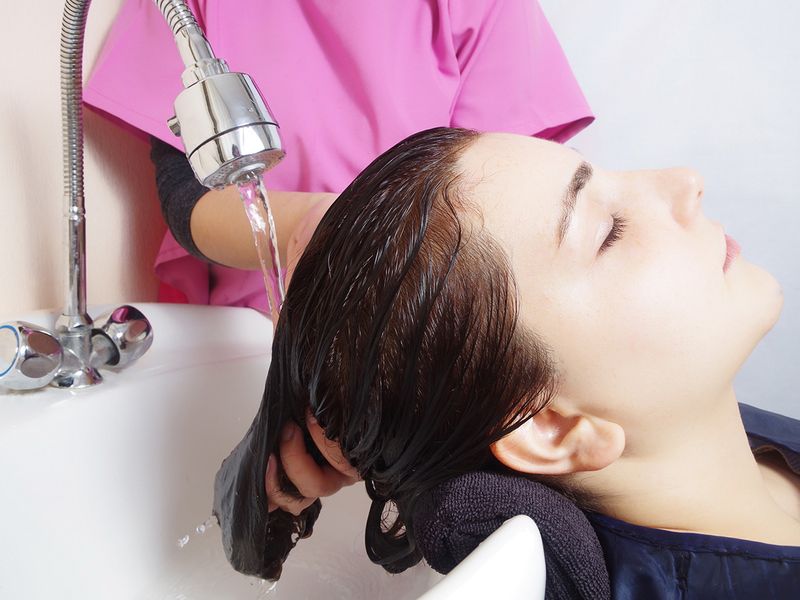
Malassezia furfur is a species of yeast that is naturally found on the skin surfaces of humans. It is associated with a variety of dermatological conditions caused by fungal infections, notably seborrhoeic dermatitis and tinea versicolor.
How do you go about this? Well, place the product directly on your head. Massage with circular motions and fingertips, and then rinse with water. Rinse with water.
The right lifestyle
You’re probably sick of hearing this, but it’s true. You need a diet rich in fatty acids, as it helps in influencing the skin barrier, decreases water loss and reduces inflammation, says Babu. These crucial elements are found in in fish like salmon, mackerel, and sardines as well as flaxseed, walnuts, and eggs. And, drink more water. It’s necessary, as studies show that drinking water has a positive impact on the skin’s function too. “Fruits and vegetables are essential for healthy hair growth as they are rich in antioxidants and reduce chances of inflammation,” adds Babu.




